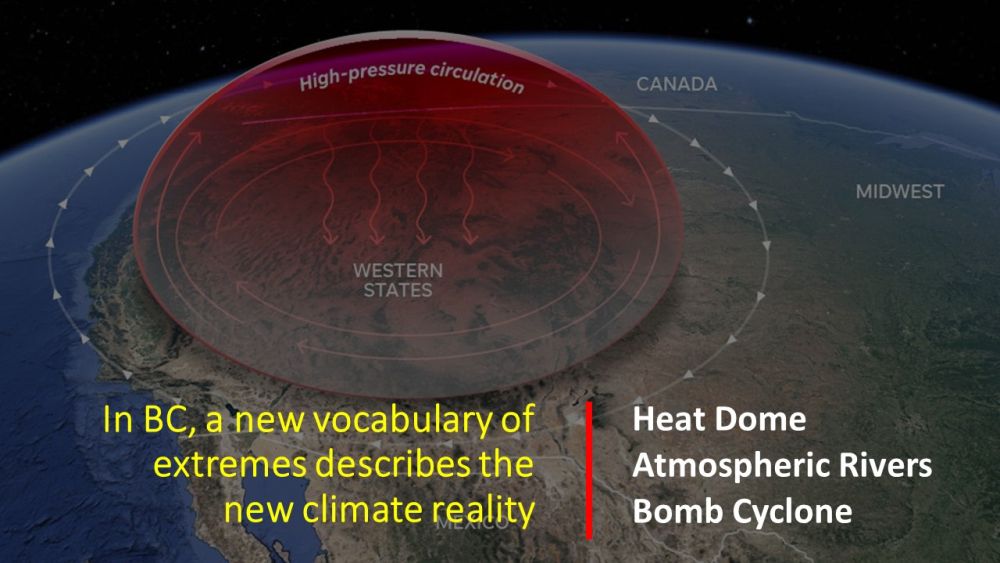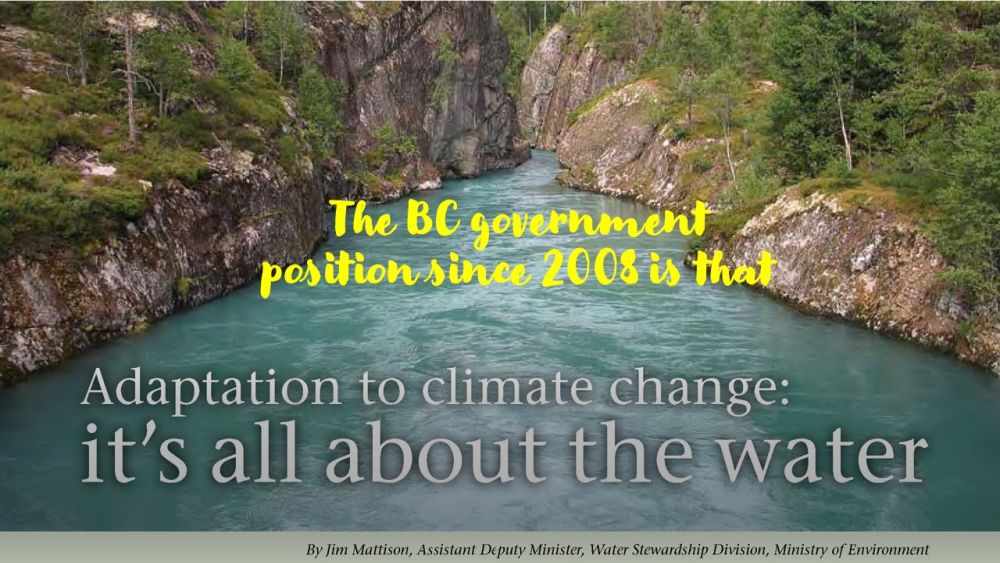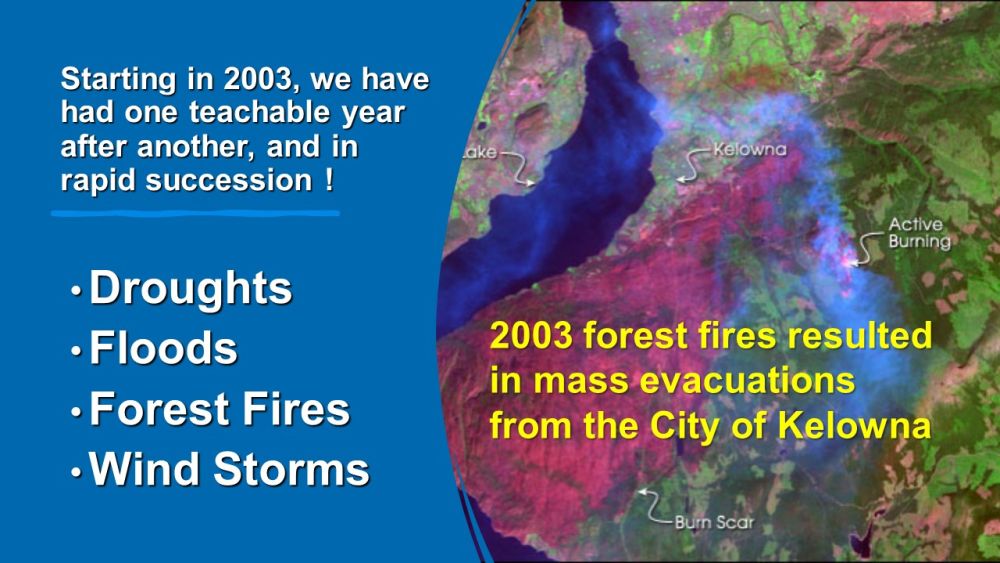THE ERA OF WEATHER EXTREMES IS UPON US: “The issues related to emergency management and climate action cannot be downplayed or ignored,” said UBCM president Laurey-Anne Roodenburg, when commenting on the pattern of sudden, extreme weather events that is testing the resiliency of B.C.’s communities (November 17, 2021)
Note to Reader:
The torrential rainfall over British Columbia in mid-November – just four months after the unprecedented heat dome – provides another indication of the growing impact of climate change on the lives of British Columbians. The pattern of sudden, extreme weather events, resulting in evacuations, catastrophic property damage, overwhelmed infrastructure, and the need for sustained emergency management are testing the resiliency of B.C.’s communities. The one thing that is clear from all of these effects is that they come at great cost to local communities.
The following article is adapted from a news release issued by the Union of BC Municipalities (UBCM) on November 17, 2021. Earlier in 2021 UBCM members endorsed an approach to managing the most critical cost drivers facing local government. Two of the three key areas identified in this study are directly related to extreme weather events: community safety and climate change.

What the Weather is Telling Us
“Local governments work closely with the province in the management of local emergencies. Too often, though, local governments find they lack sufficient warning for impending events or access to critical data as those events are unfolding. The story is the same with the need for sufficient material and personnel resources to respond to events in real time,” stated the UBCM news release.
“As the province continues its efforts to modernize emergency management legislation, local governments will need a funding and support framework to address new and ongoing emergency management costs. It is also clear that it will be necessary to scale up provincial support services to help address local government emergency management capacity for the types of extreme weather events that communities are facing.”
“While the challenges related to emergency management are substantial, the scope of the challenges in relation to climate action, mitigation and adaptation are even greater. We have seen this week the capacity of extreme weather events to overwhelm community infrastructure by disabling wastewater systems, pumping stations and dykes. Significant investment will be needed in order to upgrade existing infrastructure to meet the demands of our changing climate.”

A Starting Point for a Funding Stream for Climate Adaptation
“A study by the Federation of Canadian Municipalities and the Insurance Bureau of Canada pegs an annual investment of $5.3 billion is needed nationally in order to adapt local government infrastructure to climate change. In order to assess the need in British Columbia and develop long-term solutions, UBCM has requested that the province introduce a funding stream dedicated to supporting the development and implementation of local adaptation plans.”
“However, if the types of weather events we have seen in 2021 are becoming the norm, this becomes an immediate need, followed by provincial financial support with implementation. Implementation of adaptation plans in a 10-, 20- or 30-year horizon may no longer meet the needs of what may now be considered urgent. In order to adapt quickly, local governments will need significant financial support.

“One financial tool that supports moving forward quickly to address these high priority needs could be provided by province by directing a percentage of the Carbon Tax, on an annual basis, to local governments, to support mitigation and adaptation actions. It will also be critical for UBCM and the province to advocate for the continuation of federal/provincial infrastructure cost-share agreements at the current or greater level.”
“The extreme weather events of 2021 impact us as a province at a deeply emotional level. The challenge of a changing climate is complex, and an effective response will take years of committed, focused work in multiple areas of service delivery. UBCM is committed to this work, and is confident that the province, with the support of all parties, will continue to recognize the importance of working with local governments to take action on climate change.”


